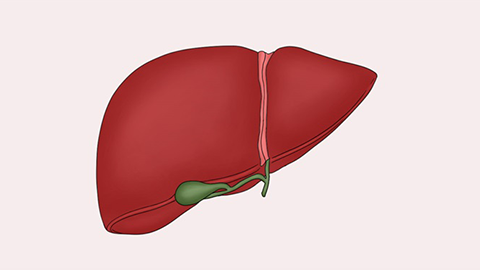What are the causes of elevated total bilirubin?
Generally, factors such as alcohol consumption, strenuous exercise, hemolytic anemia, hepatitis, and others may cause elevated total bilirubin levels. Symptomatic management through general treatment or medication may be necessary. If physical discomfort occurs, prompt medical consultation and treatment are recommended. Detailed explanations are as follows:

1. Alcohol Consumption
Long-term or excessive alcohol consumption can damage liver cells, affecting the liver's normal metabolic function of bilirubin, thereby leading to elevated total bilirubin levels. This may be accompanied by symptoms such as discomfort in the liver area and fatigue. Alcohol abstinence, along with maintaining healthy lifestyle and dietary habits, is recommended to aid in liver cell recovery.
2. Strenuous Exercise
Strenuous exercise may temporarily disrupt the body's metabolism, causing muscle cells to produce large amounts of myoglobin. When myoglobin is broken down, it releases bilirubin, thereby increasing total bilirubin levels. Usually, no specific symptoms are associated, and bilirubin levels typically return to normal after a period of rest.
3. Hemolytic Anemia
Hemolytic anemia refers to accelerated destruction of red blood cells due to shortened lifespan, resulting in the production of large amounts of free bilirubin. The massive release of free bilirubin into the bloodstream exceeds the liver's processing capacity, causing elevated total bilirubin levels. Patients may experience symptoms such as pallor, palpitations, and dyspnea. It is recommended to use medications such as azathioprine tablets, prednisone acetate tablets, and dexamethasone acetate tablets under medical guidance for treatment.
4. Hepatitis
Hepatitis virus infection or other factors can damage liver cells, affecting the liver's ability to uptake, conjugating, and excreting bilirubin, which may lead to elevated levels of both unconjugated and conjugated bilirubin in the blood. Patients may also experience symptoms such as fatigue, loss of appetite, nausea, and vomiting. It is recommended to follow medical advice and use medications such as entecavir dispersible tablets, diammonium glycyrrhizinate enteric-coated capsules, and recombinant human interferon α2b injection to alleviate symptoms.
5. Biliary Obstruction
Bile duct stones, inflammation, or other conditions may cause biliary obstruction, preventing bile from flowing normally from the liver into the duodenum. This results in the reflux of conjugated bilirubin into the bloodstream, increasing its concentration in the blood. Unconjugated bilirubin levels may also rise. Patients may experience symptoms such as right upper quadrant abdominal pain, jaundice, and clay-colored stools. It is recommended to use medications such as ursodeoxycholic acid tablets, anti-inflammatory and bile-promoting tablets, and cholagogic capsules under medical supervision for treatment.
In daily life, patients should adjust their dietary habits, avoiding intake of greasy and spicy foods, which can aid in recovery.
References
[1] Gao Xin. Clinical Study on Early Diagnosis of Neonatal Bilirubin Encephalopathy [D]. Kunming Medical University, 2020.
[2] Qian Xing, Liu Huitao. The Value of Combined Detection of Liver Function and Routine Blood Tests in the Clinical Diagnosis of Hepatitis B [J]. Clinical Medical Engineering, 2021, 28(11): 1529-1530.





